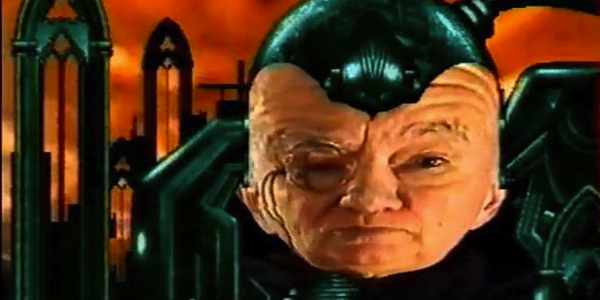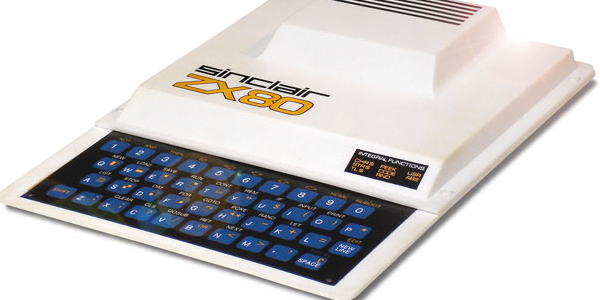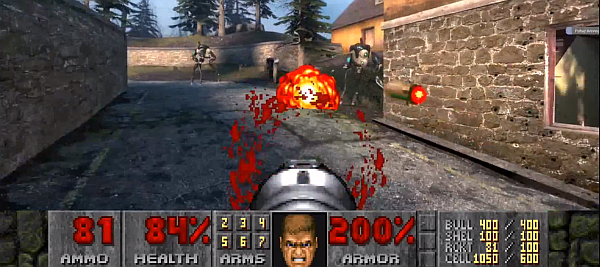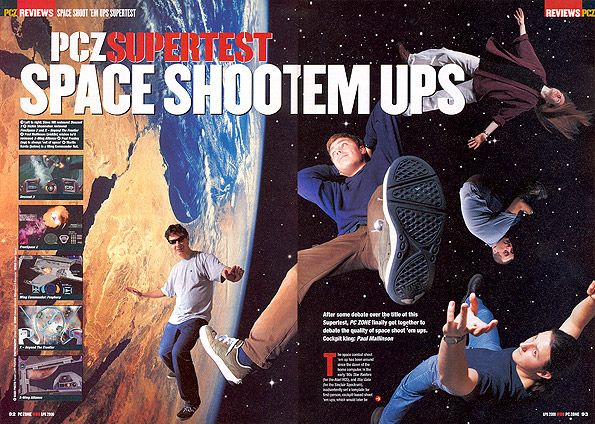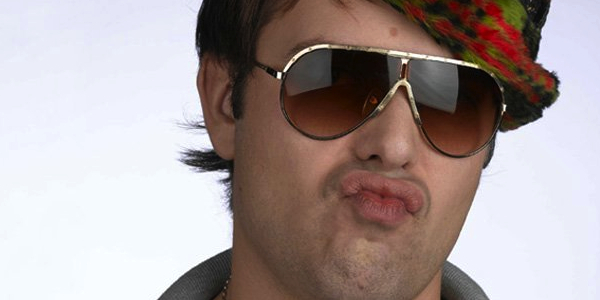Gaming Made Me: Charlie Brooker, Part 2
"the awkward sex scene"
Comedian, broadcaster, creator of Black Mirror, Gameswipe, Nathan Barley and previous PC Zoner Charlie Brooker and I went to the pub and talked about videogames. The first part was here. Here is part two of his Gaming Made Me, this time with added Nathan Barley, Twitter, and David Cage.
Charlie Brooker wonders aloud how we'd get around the huge learning curves of big games and make new control systems, remove barriers to more people coming to play games. I am trying to explain QWOP to him using my words and it's harder than you'd think. But we end up talking about how the player's input is interpreted by games in different ways. "Weirdly in terms of games I've played through with my wife, Heavy Rain is one... it was closest I've ever felt to playing an action movie. And you see I'm differentiating that from playing an action game, I was playing my way through a box set of some over the top, American murder mystery."
Quite preposterous
I ask Brooker if he's ever seen David Cage talk about his work. "Yes, he's quite preposterous isn't he? He did a game called the Nomad's Soul didn't he?" I confess I have a little bit of a fetish for Fahrenheit's awful brilliance. "I played a little bit of Fahrenheit," he says. I ask if he got to the awkward sex scene where you want to claw your own eyes out. "No but in Heavy Rain you get to see some bums," he says gleefully, steering the conversation into the sort of ditch that RPS likes to occupy. "I seem to remember that," he says, while we giggle. "There were some bums," he grins. "There were bums," I say. "I mean games do that in an embarrassing way, don't they?" Brooker says, "when they're 'adult'. I mean I'm not shocked by things, but I find myself getting annoyed with the swearing in games. Why… every other word's got to be ‘fuck, fuck, shit is fucked up’ - Call of Duty games - all those sort of games, where - if I hear one more time… 'Shit got fucked up'…"
I say it's because he's a writer and it sounds lazy to swear in dialogue all the time. He contrasts Call of Duty's lack of linguistic variety with The Last of Us, which we have already talked quite a bit about. "The Last of Us is well written because In the Last of Us they underwrite it. They underwrite everything, and they deliberately have no dialogue where they know what you’re expecting and they don’t have them say it. It’s not perfectly written but it’s one of the best written games I’ve seen. I mean also when you’re playing Call of Duty no one gives a fuck about the characters - surely - there’s a sort of arrogance on the game’s part that you care about Mason or whatever...”
Like a son who feels that daddy didn’t love him enough
I say he’s sort of got a talent for very precisely pressing the internet’s buttons. “Well that’s not deliberate, but it’s very amusing,” he grins. I mention his article on EA Bioware’s gay characters and how gamers’ attitudes towards this inclusion was incredibly disappointing. “Well that shows you how far people have got to go,” he says, “they can’t have it both ways, they can’t demand that it’s an art form and find that kind of material problematic.
“There’s a strange sense that the rest of the media has ignored them. Like a son who feels that daddy didn’t love him enough.” I say there was a pervasive sense when I worked at the BBC that the people at commissioning level weren’t interested in games. Brooker says that he thinks it’s more that it hasn’t been done before, “No one really knows... I mean what was the last thing that was done for games that was big was probably... Gamesmaster? It was mainstream.”
We stop briefly to chat about how handsome David Perry is/was, as compared to Dave “The Animal” Perry. “Shiny,” Brooker nods. “Oh no, that’s the company.”
Attitudes towards games
Back to the eariler memories: “When I was a kid, there was Micro Live, a BBC programme, and it was very much here’s the BBC Micro...” I ask if that was the one where someone hacked the BBC, live. “Yes - that was one of the first times it had been done - one of the first times they’d used a modem or something, but I mean that bit I would have found boring - because occasionally, very occasionally, they’d show something about computer games, and they did it at arm’s length in a way that implied you shouldn’t be interested.
There’s an amazing bit we were going to show on Gameswipe, but didn’t, which was they got someone to review adventure games for a Christmas Micro Live special. It was a guy sitting in a bow tie basically slagging them all off, saying all of them were basically meaningless and pointless. I think the reason that I didn’t put it in was because I later found out that this bow tie guy ended up co-writing a game with Douglas Adams and thought ‘Okay. Fair enough. Okay I’ll leave you alone.’ He obviously changed his mind. But there was a really weird sense that computers were not for that. And if they were for that it was only for kids. I don’t know where that came from - where did that come from, that computer games are for kids? Because when they first turned up it was in pubs so...?”
“Here’s a thought that has not occurred to me before but must have occurred to a million people: if games had started at the level they are now, if those were the first videogames rather than Pong... I don’t think they’d be viewed as for kids. Because they’d be viewed like fucking Blu Ray players or something like that … Because I think, I think, the reason they were viewed as for children is because to start with they were so visually primitive, just two lines and a blob, and soon after that as soon as colour arrived you could have little cartoon characters, and that was pretty much all you could do.
Certainly in the early years they were advertising them at adults and family weren’t they, like Pong... and it’s later that you get brightly coloured little cartoon characters. I guess that’s why they were perceived as being for children and that becomes just a self-fulfilling thing. There was variety and more imagination in Spectrum games than there is now. When I was a teenager they were all aimed at teenage boys but very few of them were all violent-like gun fantasies, it was more like you’re a fucking... you have to jump over a revolving corkscrew, capture four fucking mushrooms on top of an airship.”
I say we’re slowly getting back to that era: the era of bedroom coders, of the indie developers who can make their money from good ideas sold over Steam. Brooker nods. “That’s exciting. I watched Indie Game: The Movie, and I didn’t know too much about the indie games, and I thought, that reminds me of stories you’d hear about bedroom programming - that whole world, the fact that you’re seeing personalities - individual personalities - is rare. I guess somebody like David Cage - David Cage? Through force of will gets his personality reflected in his games. Even though his games are fairly impersonal, generally speaking.”
ZX80: could do fuck all
“First of all I had a ZX80, pre 81, I got a ZX at a jumble sale, which I had to borrow some extra pocket money to get. The ZX80 could do fuck all. The only game I had wasn’t really a game, it was called Cheese Grater [I burst into laughter], which had a grey rectangle which represented a block of cheese, and you had to push a button, every time you pushed a button, which was touch sensitive, so it wasn’t even really a button, every time you did that a bit of cheese would disappear, and then it would tell you how long you’d taken to make all the cheese disappear. Then I got a Spectrum, which was a 16k Spectrum, and I think it was my joint Christmas and birthday present if I remember, quite expensive - I didn’t grow up in Shameless or anything, but we weren’t loaded. It had Space Raiders on it, and Horace Goes Skiing. Those were my earliest experiences, programming games from the back of magazines. I can’t imagine having the patience now, I wouldn’t even have the patience to type it up - I wouldn’t even fucking save them. You get one fucking thing wrong and the whole thing would crash."
Career like crazy paving
We change track to talk more about his career, and how games have been the thread through most of it. “My career has always been a weird sort of one thing that leads to something else that’s not quite related to anything else. So when I fucked my dissertation [on videogames] up...I’d been working as a cartoonist. But the comics I’d been working for had folded, and I didn’t have any money, didn’t know what the fuck was I going to do. So I started working in Music and Video Exchange, Notting Hill Gate. I was working in the computer games department.”
“So that was Music and Video Exchange, and a guy ended up going off to set up CEX so I was working there - I did some comic strip adverts for them, because when they found out I was a cartoonist they’d get me to do cartoons for them. And they’d appear in various magazines, and one of them was PC Zone which was based round the corner.
"One day it was Patrick McCarthy - David McCandless would pop in - but no Patrick McCarthy wanted to know if I was interested in doing some comic strips for the magazine and so I went to chat with them. Macca said to me, ‘Why don’t you write a review?’ And my reaction was ‘I don’t think I’m qualified to do that.’ Like you needed a special qualification! I had a PC and... it was around the era of Alone In The Dark - I remember going there and seeing an early beta of Doom and thinking ‘God this changes everything: THE GUN BOBS AROUND. IT BOBS ABOUT A BIT’. And having a networked game of Doom.” What was your first review? “...I think the first review I had published was Fallout.”
I say that’s interesting that he thought he wasn’t qualified to write. I feel that way even about writing I don't get paid for. “I still have that now, with everything,” he says. “It gets to a point where you realise that’s absolutely universal. Or should be.” And if it’s not a feeling you have, you should worry? I say. “Yeah because if you’re not you must be a fucking massive egomaniac.”
“Because of working for PC Zone, I did a sort of prank call thing where I rang game helplines.” And you prank-called Edge, I say. “Yeah, although that wasn’t for them, that was just for my own bitterness,” he says. “It was really petty as well. Really petty. They refused to print the comics that were adverts for Computer Exchange, which in retrospect they were absolutely right not to do,” Brooker laughs. “It had a child shooting a dog, lots of blood in it... They were well within their rights to refuse it. I was pointlessly snarky and they caught me.”
“I was working at PC Zone and someone was doing a show at Radio One called The Digital Update with Dave Green [who now helps run BAFTA games] - he was co-hosting. And he was leaving. He did an item on these prank calls I’d done. And then he was leaving and then I replaced him. And then I was doing that and then they did a TV spin-off of it on BBC Knowledge. So that was how I started getting into television.”
He talks a little about the irreverence of PC Zone, and how it is odd that the sort of humour that PC Zone were doing still pops up in games culture, but doesn’t pop up in games too often, which is quite odd. Farcry: Blood Dragon didn’t make Brooker laugh, but he says he appreciated the attempt. “People have been tweeting me saying ‘you should play Deadpool, it’s like Airplane! for games’,” he says, and I groan a bit. “But I keep thinking someone should do an Airplane! for games.” I say they made another Leisure Suit Larry. “I can’t imagine that’s any use,” he says. People always tried to trade the original in at CEX he says, when “they realised they weren’t going to see it going in.” I describe to him Wicked Paradise’s new Oculus Rift game: an ‘erotic adventure’. “What is it, like you find yourself in the Land of Bums?” he says, slightly incredulously.
There’s a certain fear of things like Oculus Rift technology that Brooker often seems to work through in his programmes. “I’m writing something at the moment which is about sort of script where there’s a technology that lets people effectively instagram everything - constantly live. But it’s specifically about making it look nice: and I was thinking... if you could push a button and see everyone naked - well, a CGI simulation of it, how many people would actually do that all day long? A very small percentage of people? …Oculus Rift scares me.”
Nathan Barley
We move on to Nathan Barley. When I mention a lot of US games journalists have been talking about it with me recently, Brooker says there was discussion of doing an American version. I said I thought it’d work if he and Chris Morris were on the writing staff - but Brooker said he was concerned that he didn’t know enough about that world in the US. “We had loads of storylines for a second series that we’d do, which is a bit frustrating because they keep floating there and I keep thinking we could use that...”
I mention that the Black Mirror episode The Waldo Moment he has previously said was based on an idea for a Nathan Barley episode.
“There was something that I didn’t get right there, but yes it was, it was something that had come through in the discussions for Nathan Barley.”
I tell him I have a friend who became a game journalist just after Nathan Barley came out (about 2005) and watching Nathan Barley made her feel slightly less suicidal about her life. I say, “Isn’t that lovely?” Brooker says, “Yes, if a little disturbing - either she identified with Dan Ashcroft...” I say I think that’s it. “That’s worrying,” he says. “Because he is fucked. He is fucked. That character is based on... a tension that I felt at the time... because when I initially started writing about games, and I was ‘oh I’m not qualified to do that’, then when I started doing it I kind of did okay at it, and then I was making my living at it, I thought, ‘I’m doing pretty fucking well’, you know? I do remember having a couple of experiences where I’d be at a party or something and people would say ‘what do you do?’ ‘I...I...I review... videogames.’ And they’d look at you like you’d said, ‘I do colouring in. I colour things in. I’ve got these colouring-in books, and I colour things in.’
And then I remembered looking at what the readership figures were... and I remember thinking they were sort of on a par with Caravanning Magazine. What do I do about that? And so I thought I should write some things for some proper publications. What do I know about, I only know about computer games. I mean the first article I had printed in a newspaper was for the Telegraph, and I wrote an article about Dance Dance Revolution and games of that ilk. And that was it. How did I get that gig? Somebody knew somebody and I’d pitched them an idea? They quite liked the article, and were like have you got any other ideas for articles...I had to try and find an angle and I didn’t have a fucking clue.”
It was the Dan Ashcroft situation: Brooker’s experience with trying to leave games criticism and go into newspapers really did form that painful interview scene that was so memorable in Nathan Barley. “That bit of him trying to get out of the world, in the first episode where he tries to leave - and he goes for a proper grown-up interview at a newspaper, he realises he has nothing. In the interview they’re talking about what type of wine, and they’re all middle class, and he doesn’t have a clue, and he’s trying to bluff. That was very much how I felt. I wanted to move to a world that I didn’t understand. I mean I’ve been incredibly fortunate - I’ve been on hiatus, no one’s noticed I’m on hiatus... I’ve stopped writing for publication for a while.”
Nathan Barley was a result of Brooker relating his experiences in writing about games to Chris Morris, the legendary creator of Brass Eye, and trying to make it more about magazines in general. “It seemed to be a career path for music journalists, they’d write for NME and then Select and then The Observer, so... yes - they were right. Part of it came from my experience in games journalism... My career path was crazy paving.”
I ask him briefly about his involvement in that episode of Brass Eye that we all remember the most. Brooker says he was introduced to Chris Morris through his co-presenter on BBC Knowledge, Gia Milinovich, who writes about science, gadgets and technology. “I was fucking shitting myself the first time I went to see him. Because your impression of him is that he’s this Day Today intimidating intellectual... you know. Willfully goonish. He’s very disarming. ...One thing I did learn from him is that you can ride roughshod over all sorts of sensibilities to get there.
“We were already having conversations about Nathan Barley, and so we’d already had some meetings about that, and then we’d have some meetings where we’d just kick around ideas... so I remember one of those meetings where David Quantick and Peter Baynham were there as well, and we would chat about ‘What if there was a guy who was like Eminem but talks about crime, but talks about fucking being a paedo?’ So those would get kicked around and Chris would sit there and write down the ones that were funny.”
Brooker tells me that actually initially Nathan Barley wasn’t a Shoreditch wanker but just an entitled wanker who lived in Notting Hill Gate, where Brooker went to work every day passing people who were “pretending to write screenplays” outside cafes. “It was born of that - I didn’t know fucking anything about Brick Lane and Shoreditch, and so that all came about later on.... I think there was an assumption that I was immersed in that world and I really wasn’t, and Chris wasn’t. ...’It looks like an interesting preposterous world, let’s take the piss out of it’. Now when you watch Nathan Barley it looks like a fucking documentary.”
“We had a conversation really early on where Chris said Nathan should have a video diary...and I saw myself as the most technical representative, as the videogames guy and I was like video on the internet doesn’t work, it’s too slow, no one uses it... Now obviously he’d have a Youtube channel or whatever... So, what the fuck did I know? Weird that it predates Youtube. I have to keep reminding myself. I watched an episode of it recently and it’s quite mental that his phone is basically an iPhone... The fact that we were satirically coming up with abilities that his phone would have... Well those were apps. We didn’t realise it at the time. We should have fucking copyrighted them.”
Technology: Twitter as the world's most popular videogame
I say Black Mirror and Newswipe have something in common: the fear or distrust of media and technological advances. Does that reflect a world view he has? Is technology enhancing our lives, or removing things from us?
“I don’t think [technology] enhances the world any more than a pleasant taste sensation. I don’t know - this is something I am thinking about a lot for an upcoming thing: has technology made us any happier? Obviously in some ways it has in that, technology has saved more lives... but I don’t... I think the good generally levels out the bad. I’m mistrustful of things like Twitter because I think it encourages you... Twitter is the world’s most popular videogame basically, as far as I can see. It’s a videogame where you perform your personality or your opinion in a particular way ... and it’s got a high score table where it lists how many followers you’ve got.
“Now obviously as a columnist or as somebody who has got a profile in some way... I’m just doing something that everyone is encouraged to do on Twitter or Facebook which is to come up with a sort of caricatured form of yourself and perform it on a daily basis... I just think it’s encouraging people to lie and exaggerate... I think Twitter encourages people to pretend they care about things, that they don’t really - if it wasn’t easy to pretend that they did. There’s something weirdly insidious about that, that I mistrust. And it’s not like it’s anyone’s fault... But on the other hand I check it all the time because that’s where I’m exposed to a lot of news stories and what’s going on. It’s very seductive. That’s how I feel about technology in general. It’s very seductive.”
I say he’s sort of the only answer we have to Jon Stewart (“I’ll take that... they’re more ideological than I am”), and I wonder if the media misrepresenting serious issues is something that he’s really interested in bringing into focus. “The reason I ended up doing Weeklywipe (and it was supposed to be an amalgamation of Newswipe and Gameswipe but at the point where we were doing it there were no games released basically) -” I stop him: it wasn’t lack of popularity of Gameswipe that there wasn’t another one? “No, no,” he says, “We were going to do them every week. Tomb Raider was pencilled in but got pushed back. No but I was doing Screenwipe and I thought it was a bit meatier so I didn’t really understand it well, so I did Newswipe so it forced me to look at it and understand it a bit more. And then the sensibility was that I was gonna be reviewing the news like it’s just any other TV show. Then it became something more serious kind of by accident. It feels that way when you’re dealing with the kind of topics we were doing.”
I ask if the target of his satire is the media itself, or the people that consume the media. “I don’t know,” he says. “...Just in summarising things, almost any news story becomes funny in about a week.”
What are you doing next? “I’m doing some more writing, I’m doing a 2013 Wipe, which I’ll definitely put The Last of Us in, if at least nothing else. Doing another Weeklywipe, and I may be doing another videogames thing. And I’m writing some more dramas as well.”
Thank you for your time, Mr Brooker. It was very pleasant to talk games and bums.


